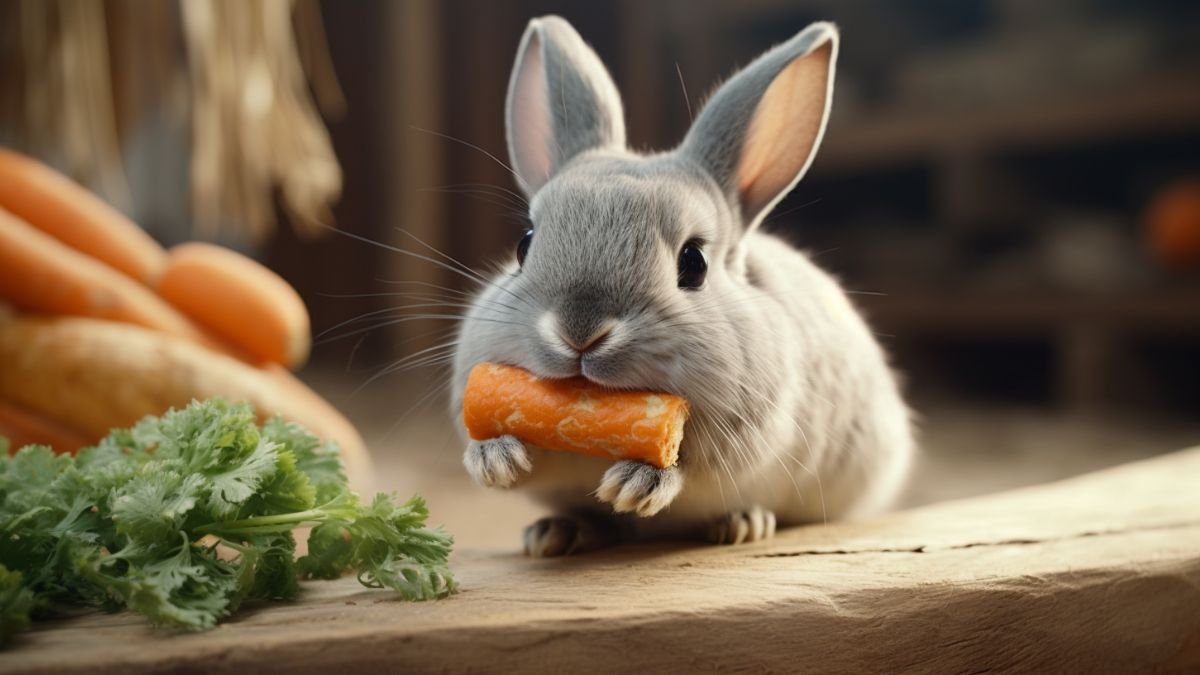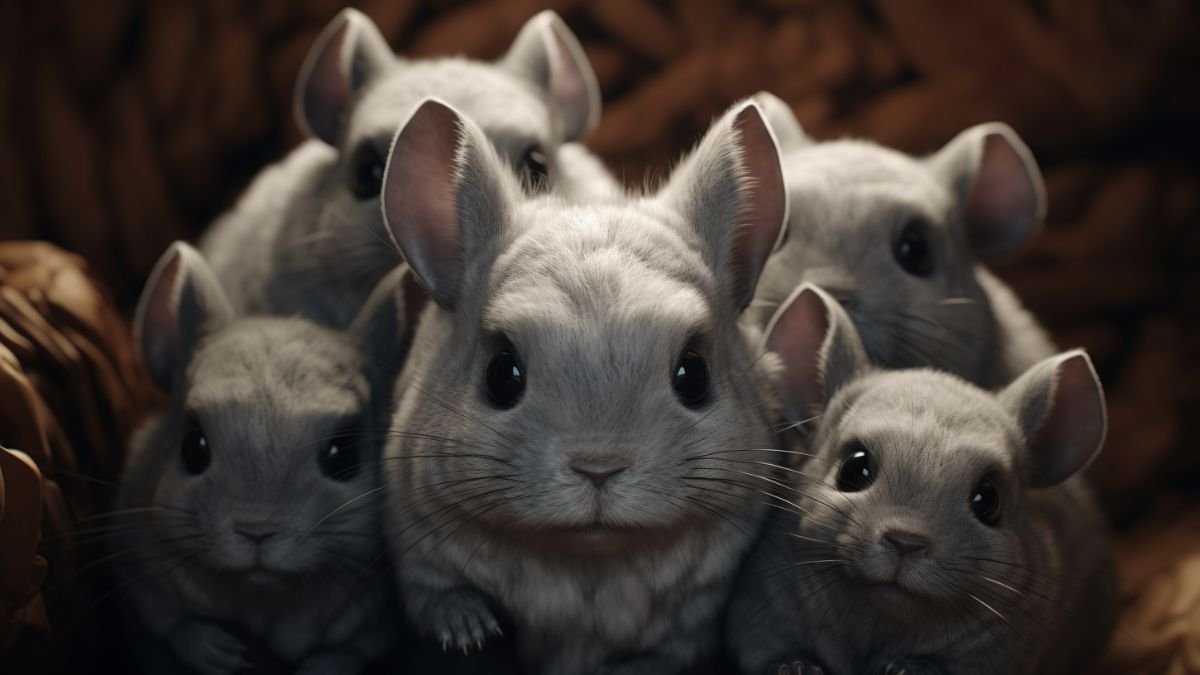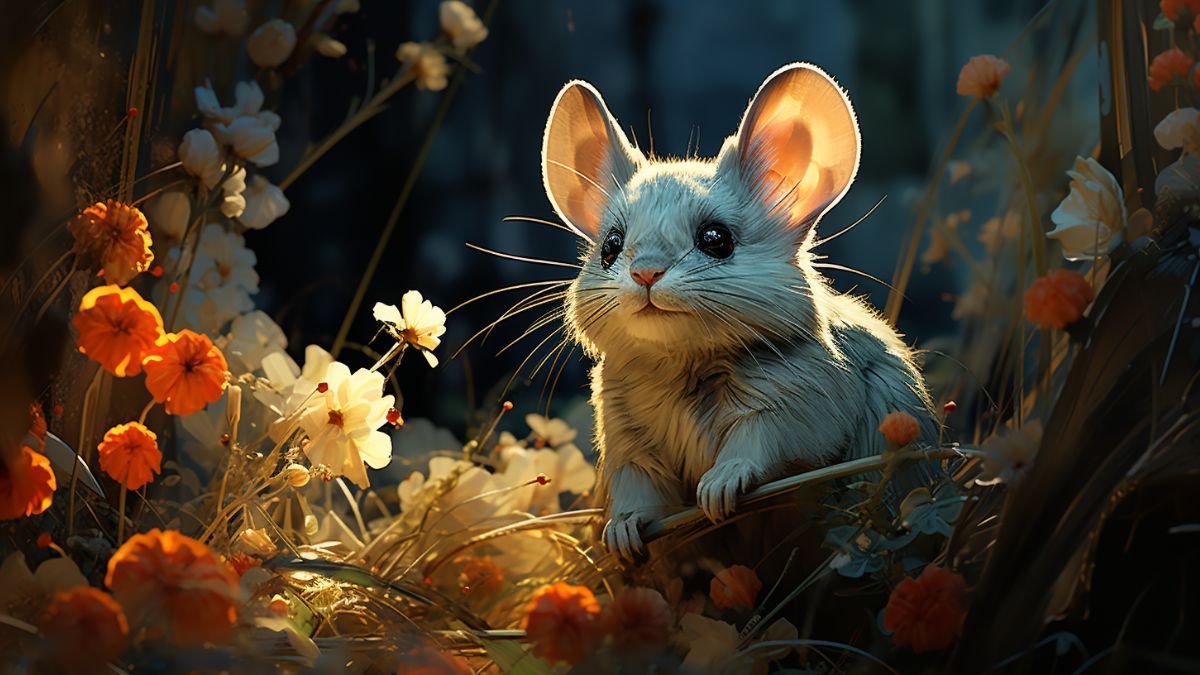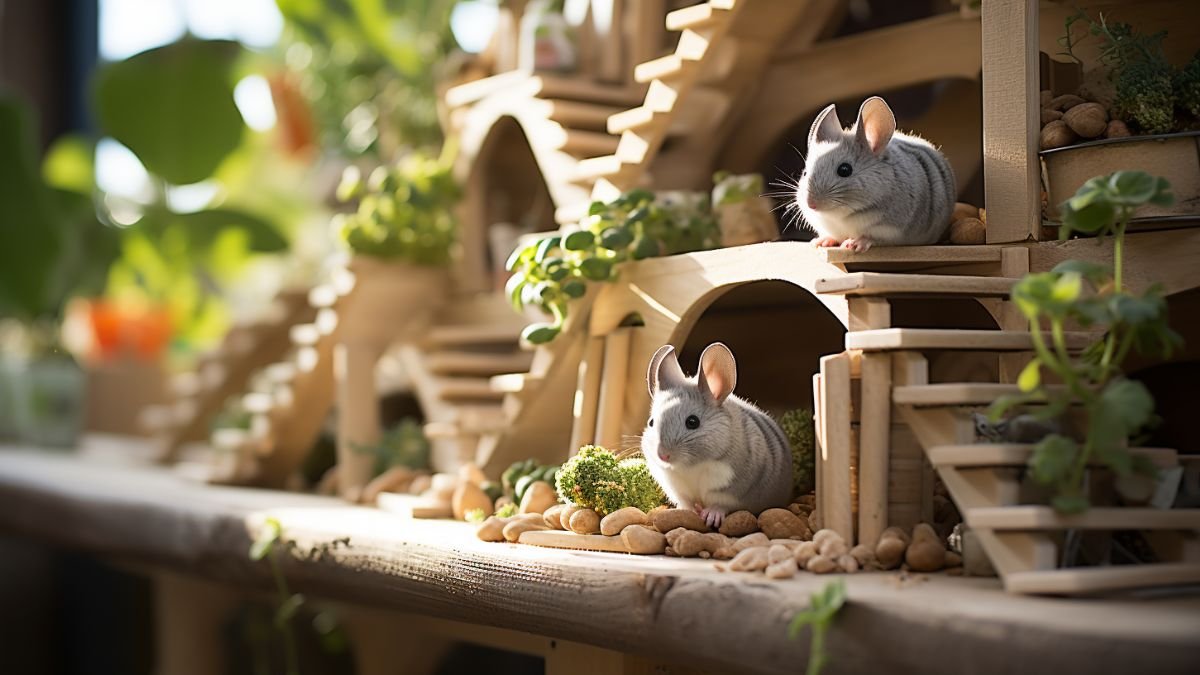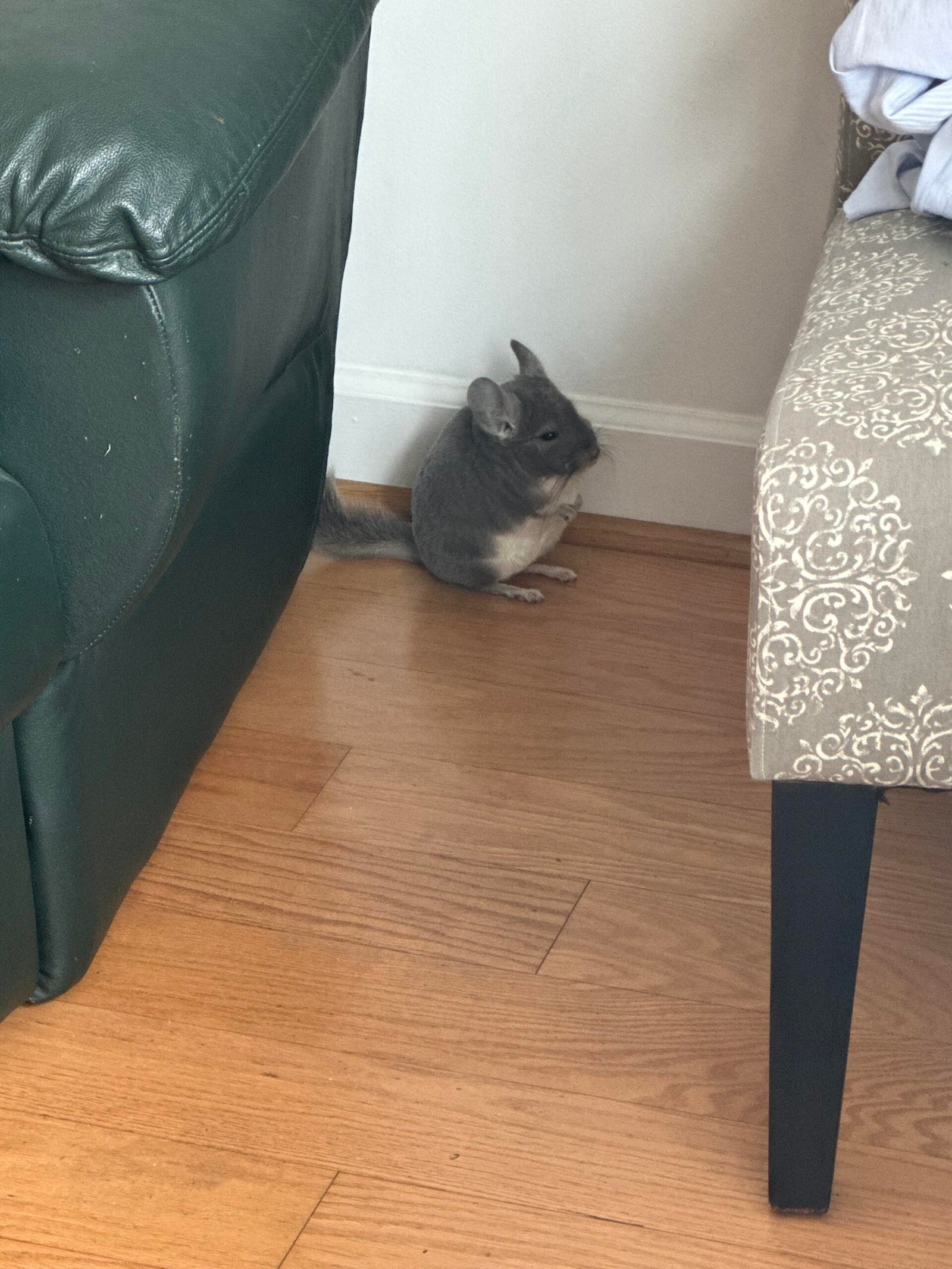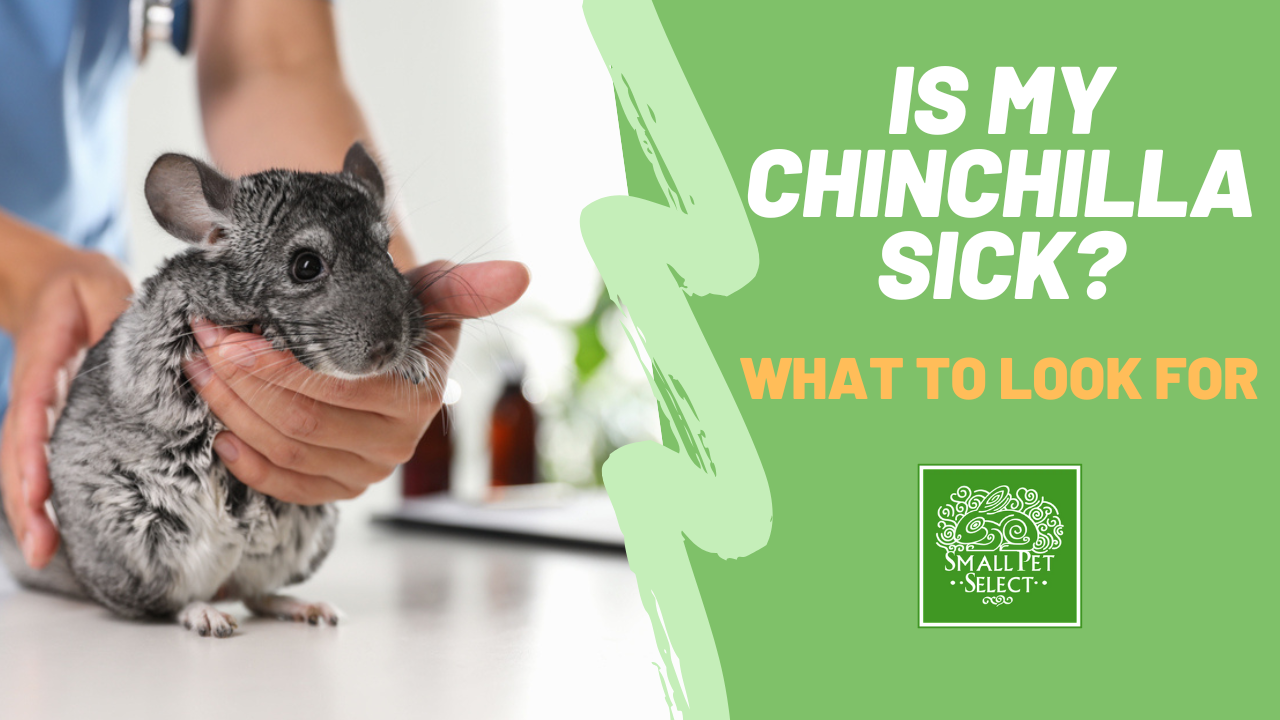
Your chinchilla can’t tell you when it feels unwell, but you can learn to spot the early signs of illness before things get serious. Knowing what to watch for helps you protect your furry friend and avoid costly vet visits.
You’ll discover simple, clear ways to recognize when your chinchilla might be sick. Pay close attention—you could make all the difference in your pet’s health and happiness. Keep reading to learn what symptoms you should never ignore.
Common Health Issues
Chinchillas can face several common health problems. Knowing these issues helps spot illness early. Early detection means better care and faster recovery.
Watch for changes in behavior or appearance. These signs often hint at health issues. Understanding common problems helps keep your chinchilla happy and healthy.
Respiratory Infections
Chinchillas are prone to breathing problems. Sneezing, coughing, or noisy breathing can signal infection. Cold, damp environments increase risk. Untreated infections can become serious quickly.
Dental Problems
Teeth grow continuously in chinchillas. Overgrown teeth cause pain and eating trouble. Look for drooling, weight loss, or difficulty chewing. Regular checks prevent severe dental issues.
Gastrointestinal Issues
Digestive problems are common in chinchillas. Diarrhea or constipation may occur. Loss of appetite or bloating are warning signs. A healthy diet helps avoid these problems.
Skin And Fur Conditions
Skin infections or fur loss can affect chinchillas. Watch for redness, itching, or bald patches. Poor grooming or stress often cause these issues. Quick treatment stops infections from spreading.
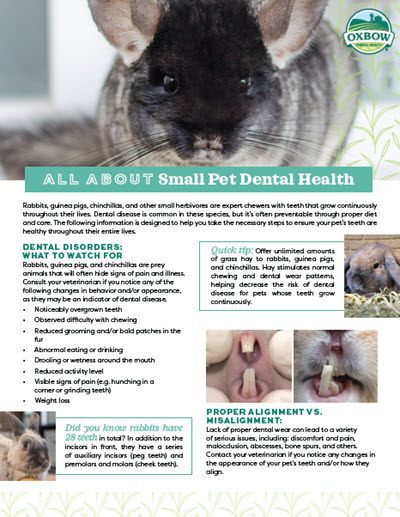
Credit: oxbowanimalhealth.com
Behavioral Changes
Behavioral changes are often the first signs of illness in chinchillas. These small pets can hide pain well. Observing their daily habits helps catch problems early. Changes in behavior can mean discomfort or sickness. Knowing what to watch for protects their health.
Decreased Activity Levels
A healthy chinchilla is active and curious. If your pet suddenly moves less or seems tired, it might feel unwell. Less jumping, running, or exploring can signal health issues. Pay attention to any drop in energy.
Loss Of Appetite
Chinchillas usually eat regularly and eagerly. Refusing food or eating less than usual can mean illness. Appetite loss is a common sign of many problems. Check for other symptoms if your chinchilla stops eating.
Changes In Grooming Habits
Chinchillas groom themselves often to stay clean. A sick chinchilla might stop grooming or groom too much. Matted fur or dirty patches may show this change. Watch for signs of neglect or excessive cleaning.
Unusual Aggression Or Hiding
Sudden aggression or hiding can reveal discomfort or pain. A calm chinchilla that becomes grumpy or avoids you needs attention. These behaviors often indicate stress or sickness. Note any new fear or irritability.
Physical Symptoms
Physical symptoms are the first visible signs that a chinchilla may be sick. These signs help owners notice problems early. Early detection can make treatment easier and more effective. Watching your chinchilla closely every day is important.
Changes in the chinchilla’s body or behavior often show sickness. Some symptoms may seem small but can mean serious issues. Understanding these signs helps keep your pet healthy.
Changes In Fur Quality
Healthy chinchillas have soft, dense fur. Look for patches of missing fur or dullness. Fur that looks rough or uneven can show illness. Excessive shedding or bald spots need attention. These changes can result from skin problems or stress.
Weight Loss Or Gain
Sudden weight loss is a clear warning. It may mean your chinchilla is not eating well or has an infection. Weight gain can also signal health issues like swelling or tumors. Regularly weigh your pet to track changes.
Abnormal Eye Appearance
Clear, bright eyes show good health. Redness, cloudiness, or discharge are signs of trouble. Squinting or constant blinking may mean pain or irritation. Eye issues need fast care to avoid worsening.
Changes In Nose And Breathing
Check your chinchilla’s nose for wetness or crusts. Sneezing, coughing, or noisy breathing can signal respiratory problems. A runny nose or labored breathing requires a vet visit soon. These symptoms can worsen quickly.
Unusual Posture Or Movement
Healthy chinchillas move easily and sit upright. Limping, stiffness, or reluctance to move may indicate pain. Hunched posture or trembling can show illness or injury. Watch for any sudden change in activity or posture.

Credit: smallpetselect.com
Appetite And Weight
Appetite and weight are key signs of chinchilla health. Changes in eating habits or body weight often signal illness early. Watching these signs helps catch problems fast.
Chinchillas normally eat small amounts several times a day. They enjoy hay, pellets, and fresh water. A sudden drop in appetite may mean your pet feels unwell. Weight loss can happen quickly and is serious. Regular checks keep your chinchilla safe.
Monitoring Eating Habits
Check your chinchilla’s food daily. Note if they eat less or stop eating. Loss of appetite can show illness or pain. Watch for changes in how much hay or pellets they eat. Refusal to eat treats or fresh food is also a warning.
Weighing Your Chinchilla Regularly
Use a small scale to weigh your chinchilla weekly. Track their weight in a notebook or app. Losing more than 5% of body weight needs attention. Rapid weight loss can cause serious health problems. Keep a steady record to spot changes early.
Signs Of Weight Loss To Watch For
Look for a thinner body or visible bones. Your chinchilla may seem less active or weak. A dull coat can also mean poor health. Sudden weight loss often needs a vet’s care. Early action improves recovery chances.
Coat And Skin Condition
The coat and skin condition of chinchillas reveals much about their health. Healthy chinchillas have soft, dense fur and smooth skin. Changes in the coat or skin often signal illness early. Watch closely for any signs of trouble.
Changes In Fur Texture
Healthy chinchilla fur feels soft and thick. If the fur becomes rough, dry, or patchy, it can mean health issues. Fur that looks dull or brittle also signals problems. These changes may indicate stress, poor diet, or illness.
Hair Loss And Bald Patches
Bald spots or hair loss are serious signs. They may appear from scratching, mites, or skin infections. Hair loss can also result from fungal infections or allergies. Check your chinchilla’s skin for redness or sores near bald areas.
Skin Redness And Irritation
Red or inflamed skin shows irritation or infection. The skin may look swollen or have scabs. These signs often mean an allergic reaction, parasites, or dermatitis. Monitor any redness closely and seek veterinary help if it worsens.
Unusual Odors From Fur Or Skin
A strong smell from the fur or skin is unusual. It can indicate bacterial or fungal infection. Healthy chinchillas have a clean, mild scent. Bad odors may require immediate care to prevent further illness.
Respiratory Signs
Respiratory issues are common in chinchillas and can worsen quickly. Early signs help catch problems before they become serious. Watch your chinchilla closely for any breathing changes. Quick action can save their life.
Changes In Breathing Rate
Healthy chinchillas breathe quietly and steadily. Faster or slower breathing may signal illness. Count the breaths per minute for a baseline. Notice if your chinchilla breathes harder than usual.
Noisy Breathing Or Coughing
Listen for wheezing, clicking, or coughing sounds. These noises often mean respiratory irritation or infection. A chinchilla should never make consistent unusual sounds. Report these signs to a vet quickly.
Nasal Discharge
Clear or colored discharge from the nose is a red flag. It may indicate infection or allergies. Check your pet’s nose every day for wetness or crusts. Keep the cage clean to reduce risks.
Labored Or Open-mouth Breathing
Chinchillas usually breathe through their nose. Open-mouth breathing shows severe trouble. This sign requires immediate veterinary care. Do not wait or try home remedies for this symptom.
Changes In Activity And Behavior
Breathing problems often come with low energy and hiding. Your chinchilla may stop eating or grooming. These behavior changes help confirm respiratory distress. Early vet visits improve recovery chances.
Dental Health
Dental health is very important for chinchillas. Their teeth keep growing all the time. They need to chew hard things to wear teeth down. If teeth grow too long, it can cause pain and illness. Watch their teeth closely. Early signs of dental problems can save your pet from serious issues.
Signs Of Overgrown Teeth
Teeth may look long or uneven. Your chinchilla might stop eating or chew less. Drooling more than usual can also happen. Check their mouth gently for sharp points or sores. Overgrown teeth can hurt their tongue and cheeks.
Changes In Eating Habits
Watch if your chinchilla eats less or drops food. They might avoid hard pellets or treats. Weight loss is a strong sign of dental trouble. Eating slowly or with difficulty means pain. These changes need quick attention.
Behavioral Changes Linked To Dental Pain
Your chinchilla might hide or act grumpy. They may stop playing or grooming. Teeth pain makes them less active. They can become quiet or restless. Notice any change in mood or energy.
Regular Dental Checks
Check your chinchilla’s teeth every week. Use a soft light and gentle touch. Look for changes in tooth length and shape. Regular checks help catch problems early. Talk to a vet if you see anything unusual.

Credit: cthumane.org
Monitoring Daily Activity
Monitoring your chinchilla’s daily activity helps spot illness early. Healthy chinchillas are lively and curious. Any change in their usual actions can signal a problem.
Watch your chinchilla closely every day. Small signs might be easy to miss. Tracking activity helps catch illness before it worsens.
Observe Movement And Energy Levels
Healthy chinchillas move around often and with energy. Sudden sluggishness or less movement can mean sickness. Notice if your chinchilla stops jumping or running.
Check Eating And Drinking Habits
Chinchillas eat and drink regularly. A drop in food or water intake is a warning sign. Keep track of how much your chinchilla consumes daily.
Notice Grooming And Cleanliness
Chinchillas groom themselves frequently. Poor grooming or a dirty coat can indicate illness. Look for changes in fur texture or cleanliness.
Track Sleeping Patterns
Chinchillas have set sleep routines. Excessive sleeping or restlessness can signal health issues. Pay attention if your chinchilla sleeps more or less than usual.
When To Seek Veterinary Care
Knowing when to seek veterinary care for your chinchilla is important. Early treatment can prevent serious health problems. Watch for signs that your pet needs professional help right away. Acting fast can save your chinchilla’s life.
Changes In Eating Or Drinking Habits
Chinchillas that stop eating or drinking need a vet visit. Loss of appetite may show illness or dental issues. Drinking less water can cause dehydration quickly. These changes are often the first warning signs.
Unusual Behavior Or Lethargy
If your chinchilla becomes very quiet or weak, call the vet. Lack of energy or hiding more than usual can mean sickness. Normal activity levels help you know your pet’s health status.
Breathing Problems
Labored or noisy breathing needs immediate veterinary attention. Breathing changes can indicate infections or lung problems. Quick action is critical to avoid serious complications.
Visible Injuries Or Swelling
Swelling, wounds, or limping require a vet’s care. Injuries can get infected if left untreated. Early treatment helps reduce pain and speeds recovery.
Changes In Feces Or Urine
Diarrhea, constipation, or blood in waste signals illness. These symptoms can lead to dehydration and other issues. Contact a vet for proper diagnosis and care.
Frequently Asked Questions
What Are Common Early Signs Of Illness In Chinchillas?
Look for loss of appetite, lethargy, dull fur, sneezing, and changes in droppings.
How Can I Tell If My Chinchilla Is Sick?
Watch for unusual behavior like hiding, less movement, or abnormal breathing.
Why Is Fur Condition Important In Chinchilla Health?
Healthy chinchillas have soft, clean fur; rough or patchy fur signals problems.
What Changes In Chinchilla Droppings Indicate Illness?
Smaller, soft, or missing droppings may mean digestive issues or illness.
Can A Sick Chinchilla Show Changes In Eating Habits?
Yes, a sick chinchilla often eats less or stops eating completely.
How Does Breathing Help Identify Chinchilla Sickness?
Noisy, fast, or labored breathing can be signs of respiratory illness.
When Should I Contact A Vet For My Chinchilla?
Contact a vet if signs last more than a day or worsen.
How Often Should I Check My Chinchilla For Illness Signs?
Daily checks help catch illness early and keep your chinchilla healthy.
Conclusion
Caring for your chinchilla means watching for small changes daily. Early signs of illness can be subtle but important. Act quickly to keep your pet healthy and happy. Trust your instincts and stay calm during any health concern. Regular checks help catch problems before they worsen.
Your chinchilla depends on you for care and comfort. Stay informed and ready to protect your furry friend. Small efforts make a big difference in their well-being. Keep learning and loving your chinchilla every day.

